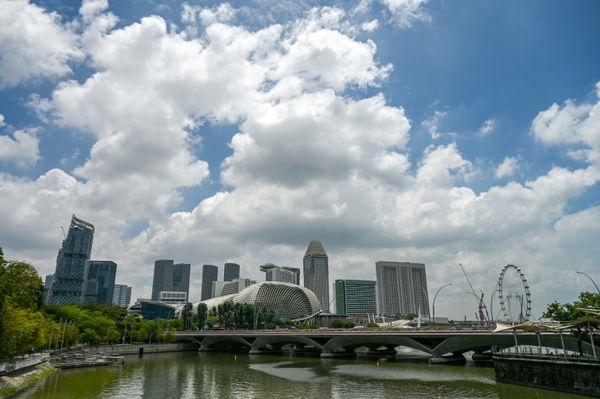
Some good documentaries feel as if they land in their director’s lap. Icarus, from 2017, seemed to luck out when doping in cycling became an international scandal midway through production; 2022’s Navalny included the Russian government’s brutal targeting of Vladimir Putin’s political rival. Although these were riveting films, there was a sense that they happened to be in the right place at the right time with a camera. In the case of Undercover: Exposing the Far Right, cameras were running during an extremely eventful 10 months for Britain, which climaxed with the race riots this summer, providing a cinematic final act. But Havana Marking’s film isn’t just a good documentary – it’s a great one.
Over 90 minutes, it follows investigators from the organisation Hope Not Hate as they track down far-right extremists. At first, this seems like an unnecessary endeavour: social media feels flooded with the “alt-right” broadcasting their views. The race rioters in Britain – and in the US at Charlottesville, Virginia, in 2017 and the Capitol in 2021 – weren’t exactly trying to conceal themselves. But as it continues, the importance of their work becomes increasingly evident.
Marking, best known for the 2009 Sundance winner Afghan Star, focuses on two heroic figures from Hope Not Hate. Patrik Hermansson is a senior researcher who infiltrated the fascists at the Unite the Right rally in Charlottesville in 2017, at which about 50 people were injured and the counterprotester Heather Heyer was killed. Here, he acts as a handler of sorts for Harry Shukman, a journalist who is “very interested in the far right”, but has never before used a hidden camera. Shukman operates as an audience surrogate, with the more seasoned members of the team, led by Nick Lowles, Hope Not Hate’s founder, explaining to him the strategy and significance of their mission.
It is nail-biting work; Shukman and Hermansson frequently feel in extreme danger when a hidden camera could be detected or a slip of the tongue could expose them. We learn that these groups are aware they are being infiltrated, although they don’t know by whom.
But much like Laurence Fox on X, piling up libel lawsuit after libel lawsuit, these people seem incapable of shutting up. Nick Scanlon, Britain First’s candidate for London mayor in May, uses just about every slur for Black people during a brief conversation with a relative stranger, recorded on a hidden camera. The activist Erik Ahrens praises the SS as “the elites”. The academic Emil Kirkegaard spouts eugenics talking points with a side of fixation on penis size. Even the “respectable” face of the movement, Cambridge-educated Matt Archer, is surprisingly indiscreet when it comes to the goals of the Human Diversity Foundation, which is funded in secret.
The eventual revelation of who is handing over the cash for the foundation is a gorgeous moment of triumph for the team – and one of the film’s funniest moments. When Shukman returns to spill the beans to Hermansson and says: “You would never guess who it is,” he is not exaggerating.
Funny moments aside, this documentary uncovers a number of real dangers. Hope Not Hate reveals a plot to murder the MP Rosie Cooper and shows how far-right thugs are rallying online and how organisations such as the Human Diversity Foundation are aiming to influence policy. It is not as though Stephen Yaxley-Lennon, AKA Tommy Robinson, is about to be elected prime minister, but the film shows the slow creep of the “Overton window” – whereby exposing people to the most extreme ideas makes diluted versions of them appear palatable, thus shifting to the right the range of policies that are politically acceptable to the mainstream.
It also helps that Hermansson, who has infiltrated far-right and nationalist groups across the US and Europe, is a dignified figure who does not resort to hyperbole. This lends gravitas to the moment when he reflects grimly on seeing the rise of fascism and homophobia elsewhere: “It’s scary because I believe it could happen here as well.”
That warning feels particularly prophetic given the UK race riots. The events of 30 July to 10 August – of people being attacked, buildings being burned, Elon Musk tweeting “civil war is inevitable” – are painful to watch. The film slows down a little as these moments play out; we see how the work bears down on the team from Hope Not Hate, who break through their despair to document the violence and identify the instigators, all while Lowles’ life is being threatened online.
The film made headlines on Saturday when the London film festival cancelled a screening over safety concerns. Lowles released a statement that read: “Safety must always be an utmost priority. But we can’t deny that it is disappointing to see the brave work of our staff being denied the widest possible audience. Now, more than ever, the true nature of the far right, in Britain and abroad, needs to be exposed.”
At least those watching on television will be exposed to the true nature of the far right – and one of the year’s great documentaries.
• Undercover: Exposing the Far Right is on Channel 4







